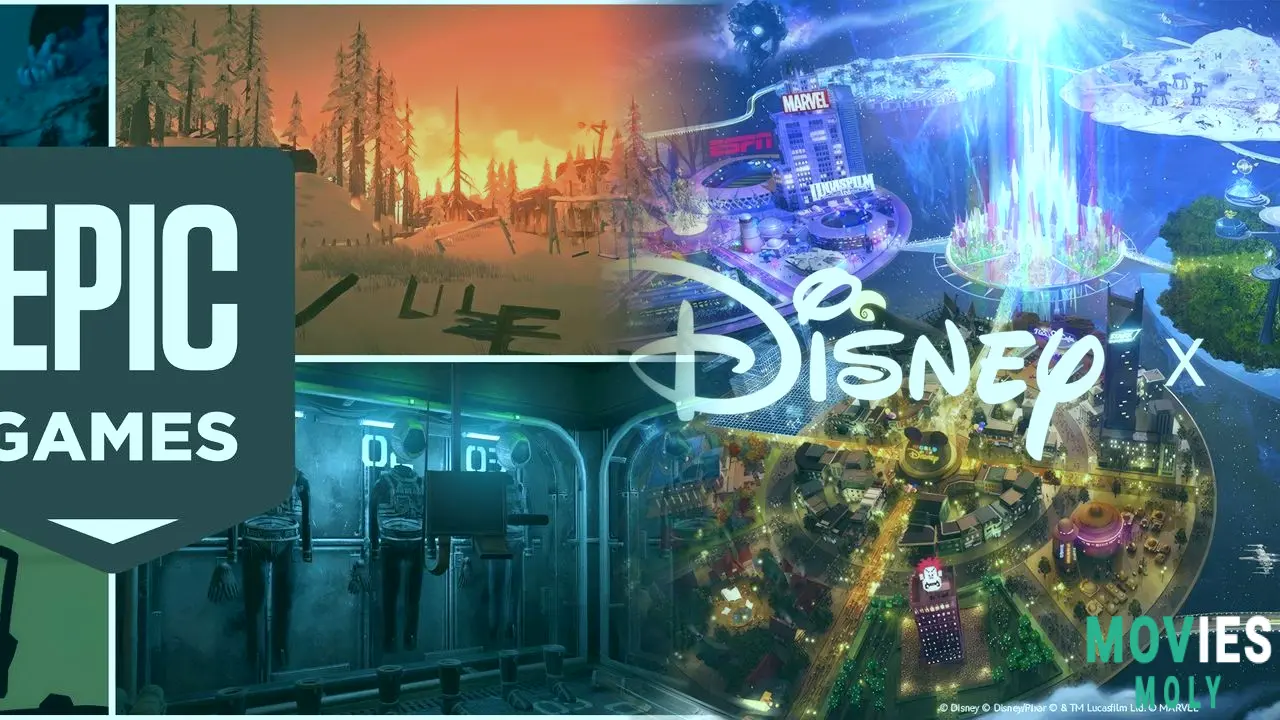Epic Games continues to transform the gaming environment, not only with blockbuster titles like Fortnite, but also with a broad economic plan that includes weekly free game giveaways and a big relationship with Disney. This strategy puts Epic Games as a key participant in the gaming industry, with a vision for a future that goes beyond traditional gaming and into a connected digital environment. There's no denying Epic's strategy is ambitious, and it's worth investigating how these many endeavors interact.
From its beginnings with Unreal Engine to its present domination with Fortnite and the Epic Games Store, the firm has continuously pushed the boundaries. Its fast growth and emphasis on community and developer support are evident. This is more than simply individual games; it is about creating a complete ecosystem.
The 'Epic' Strategy: Free Games and Strategic Partnerships.Epic Games has become synonymous with generosity as a result of its constant distribution of free PC games through the Epic Games Store. This week, gamers can claim Road Redemption and 112 Operator, two separate titles that demonstrate the diversity of their offerings. Road Redemption recreates the chaotic, weapon-filled motorbike racing of classic titles such as Road Rash. Meanwhile, 112 Operator provides a detailed simulation of emergency service administration.
These free game freebies are more than simply a bonus for players; they are an essential component of Epic Games' growth strategy. The goal is straightforward: attract new customers to the Epic Games Store, grow market share against competitors such as Steam, and encourage consumers to explore additional offerings inside the Epic ecosystem. While the profitability of this particular method is still debated, its success in user acquisition is undeniable.
Epic Games is not only providing away games; they are creating an ecosystem. Every free title is another block in their digital fortification.
Epic's overall business strategy supports its aggressive user acquisition strategy. The company generates money from Fortnite, Unreal Engine license, and the Epic Games Store itself. This enables Epic to invest extensively in projects such as free games, certain that a larger user base will result in future revenue from game sales, in-app purchases, and other services.
Deep Dive: The Fortnite-Disney 'Project Bulldog' Universe.
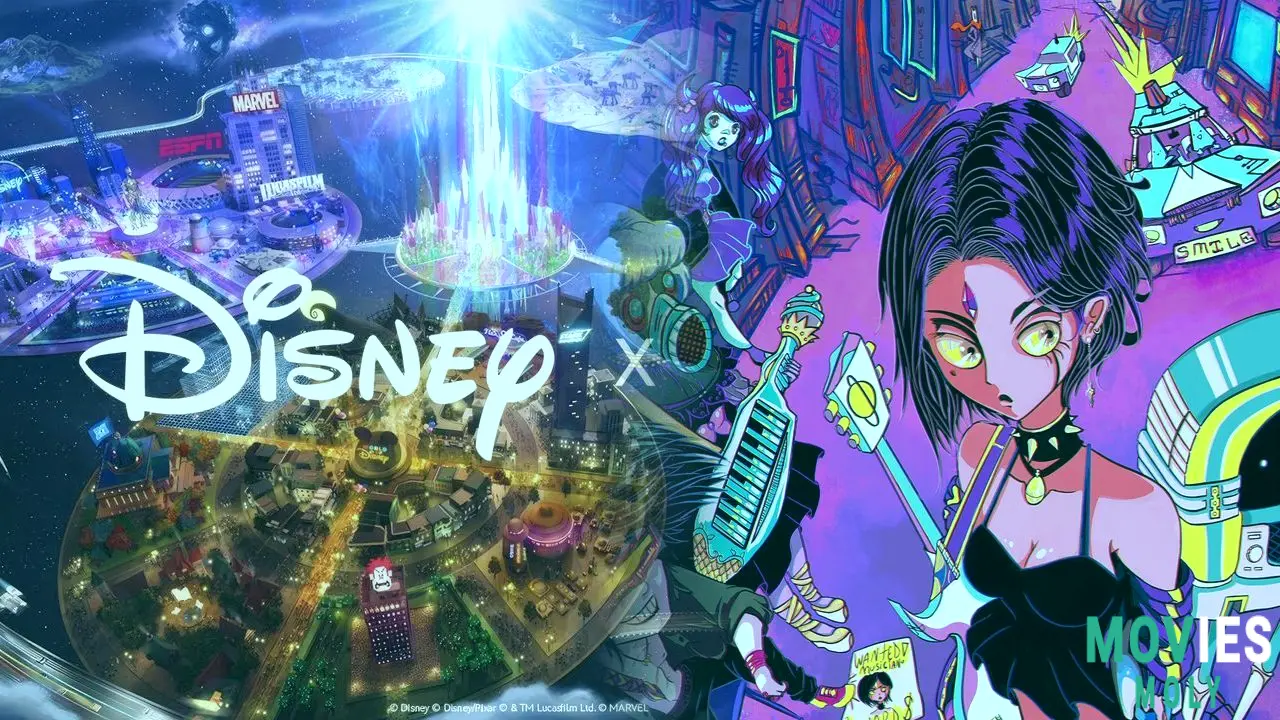
Epic Games' collaboration with Disney, known as 'Project Bulldog,' is arguably its most ambitious project. This collaboration intends to create a massive, interconnected game universe within Fortnite, bringing famous Disney characters and worlds together in a single digital arena. The potential for cross-play and new interactive experiences is enormous, pointing to a future in which players can smoothly transition between various Disney titles within Fortnite's framework.
The idea for this partnership extends beyond basic character skins, such as Darth Vader in Fortnite. It suggests a continuous, growing gaming environment in which Disney's extensive library of stories and characters might interact on a massive scale. This move is consistent with Epic Games' major investment in the metaverse, which seeks to be a primary point for digital experiences.
The Fortnite-Disney collaboration is more than just a game; it's a look at the future of interactive entertainment. #EpicGames #Metaverse.
Epic Games CEO Tim Sweeney downplayed recent reports of "slow decision-making" in the Disney-Epic alliance. He added that the collaboration is advancing at a "10x" rate, implying a quick development pace for this enormous endeavor. This rebuttal indicates a strong commitment from Epic and Disney to make this shared universe a reality, potentially setting a new benchmark for game collaborations.
Beyond the Headlines: Tim Sweeney's Vision For Epic Games
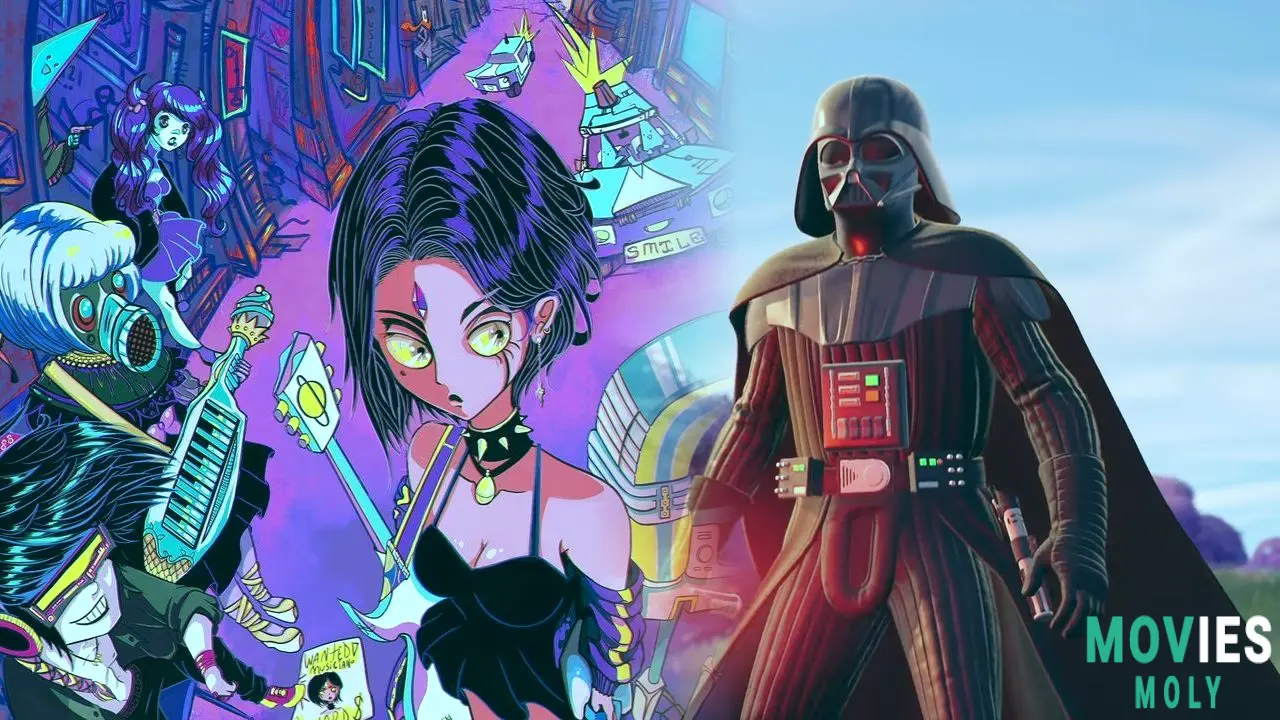
Epic Games' CEO, Tim Sweeney, has a clear vision for the gaming industry's future, one based on open platforms and developer-friendly terms. As evidenced by previous litigation, Epic's attitude has frequently put the company in direct conflict with other industry titans. Sweeney's adherence to these principles drives Epic's policies, notably the Epic Games Store's competitive revenue split for developers.
Tim Sweeney's dedication to open platforms and developer-friendly policies is shaking up the business. A truly 'epic' war over the future of digital distribution.
Epic Games' overall business approach follows a consistent narrative. The free game offerings act as a user acquisition technique, bringing new gamers into the Epic ecosystem. The Unreal Engine serves as the technological backbone, allowing for the development of high-fidelity games and large projects like the Disney cooperation. Fortnite serves as the core center, providing a popular platform for introducing and monetizing these new experiences. This integrated approach enables Epic to pursue aggressive expansion while also building a community around its products.
The Unreal Engine is a key component of this technique. Its tremendous capabilities enable the development of visually appealing and technically demanding games, ranging from mobile games like Asphalt Legends Unite to large-scale metaverse projects. This technology advantage enables Epic to form ambitious agreements and create detailed virtual environments, such as the future Disney universe.
Keyword Analysis: Dominant 'Epic' Search Queries

Primary and Secondary Keywords
Epic Games' endeavors naturally generate great interest in keywords such as "Epic Games," "Epic Games Store," and "Fortnite." The Disney partnership includes "Disney," "Project Bulldog," and "Darth Vader Fortnite." The free game giveaways feature "free games," "game giveaways," "Road Redemption," and "112 Operator." These keywords are essential to Epic's public image and user interest.
Long-tail and low-competition keywords.
Beyond the direct product names, Epic's plan includes long-tail keywords like "Epic Games business model," "Epic Games growth strategy," "Unreal Engine licensing," and "metaverse gaming." These terms demonstrate increased consumer interest in the company's strategic direction and its impact on the larger gaming industry. Analyzing these provides a more comprehensive understanding of Epic's market position.
Content Gaps: What Competitors Missed.
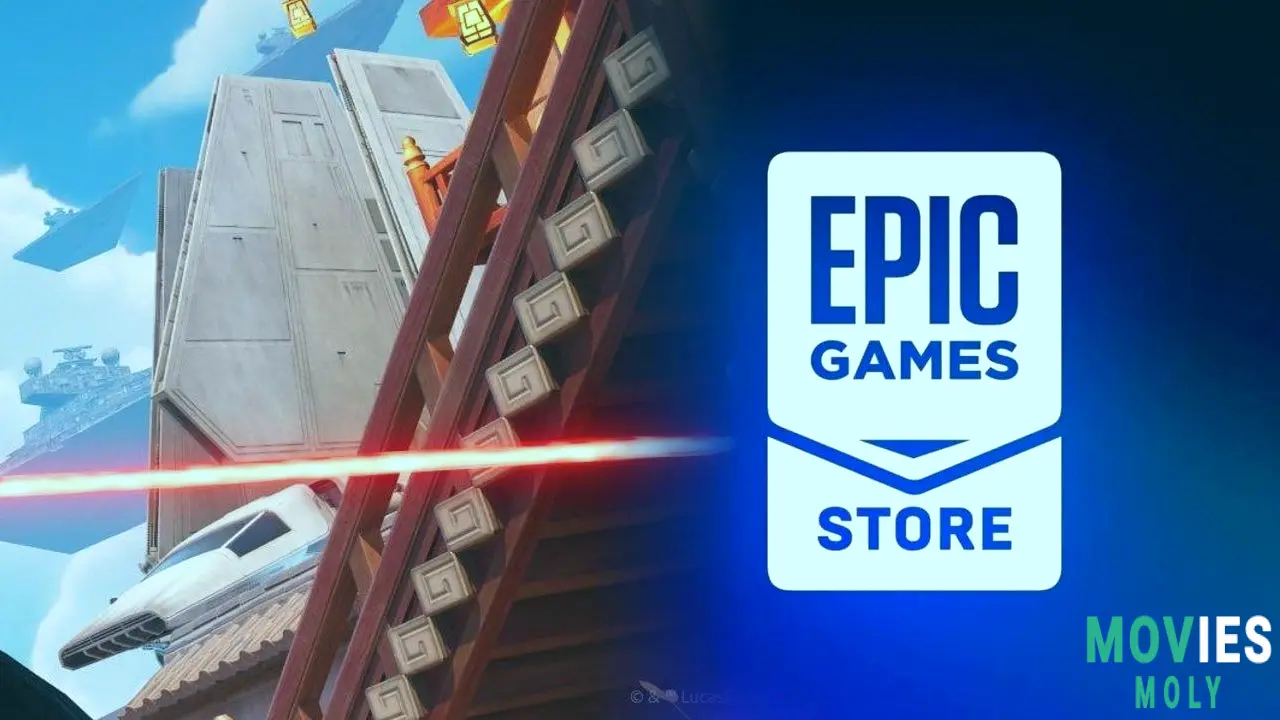
Unaddressed topics and deeper insights
Many rival articles merely mention the free games or the Disney relationship. However, taking a closer look at the strategic ramifications reveals more. For example, the free game approach is more than just giving away games; it's about boosting user base and market share, even if it means sacrificing short-term revenue. This aggressive approach challenges the supremacy of other digital stores, such as Steam, which normally use a different distribution scheme.
Value-Adding Content Sections
A comparison of Epic Games' platform approach with Steam would highlight their distinct selling features and obstacles. While Steam maintains a commanding position, Epic's developer-friendly revenue sharing and consistent free releases aim to erode that advantage. User and community reactions to these free games, as well as the Disney collaboration, are also important considerations. While formal statements are accessible, understanding the general response among gamers provides useful insight.
Competitor Strengths and Weaknesses: How to Outrank
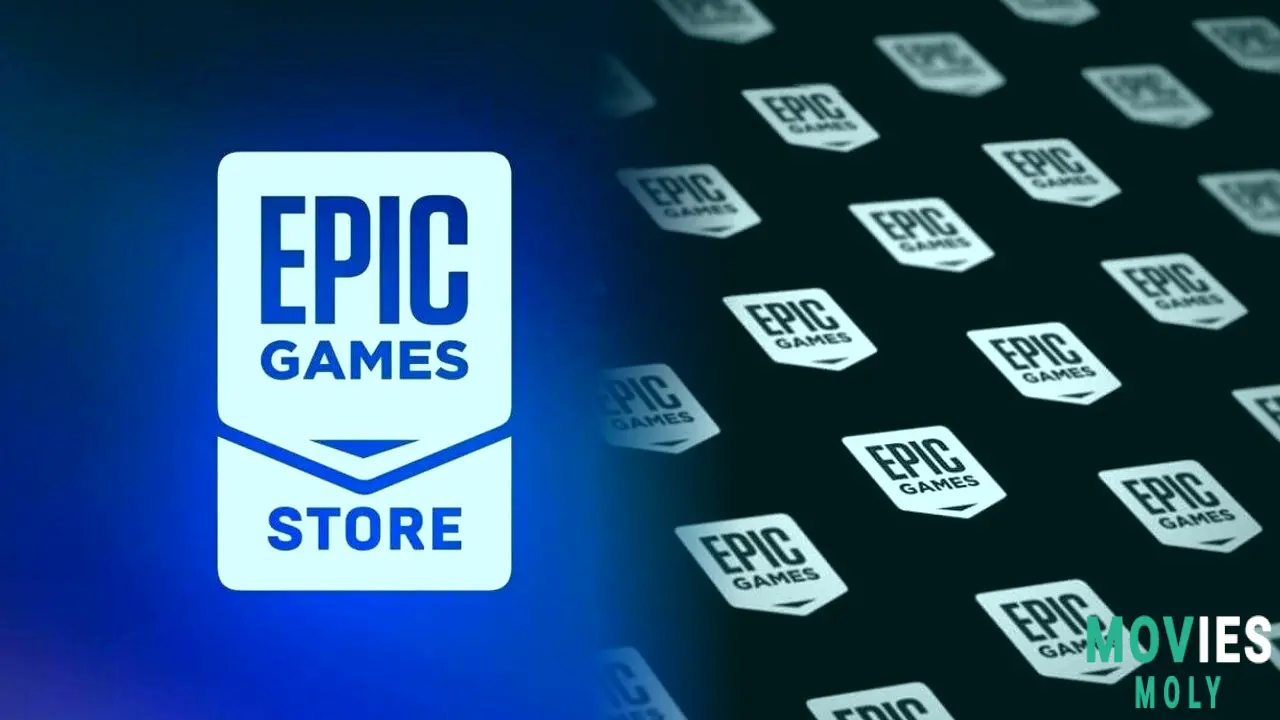
Competitors' Strengths: What They Do Well
Competitors frequently succeed at making timely notifications about free games and providing basic summaries of new features. They include direct links to the Epic titles Store and explain the mechanics of titles such as Road Redemption. Some also discuss franchise history, such as how Asphalt Legends Unite evolved.
Competitor Weaknesses: Opportunities for Your Article.
Many competitor publications lack a clear narrative that connects Epic's different projects. They frequently overlook the strategic "why" behind the free games or the breadth of the Disney collaboration. There is also a general lack of in-depth comparisons with other platforms or projections about Epic's role in the metaverse. This article seeks to bridge those gaps by offering a more comprehensive and forward-thinking perspective on Epic Games.
Future Predictions: Epic Games' Place in the Gaming Landscape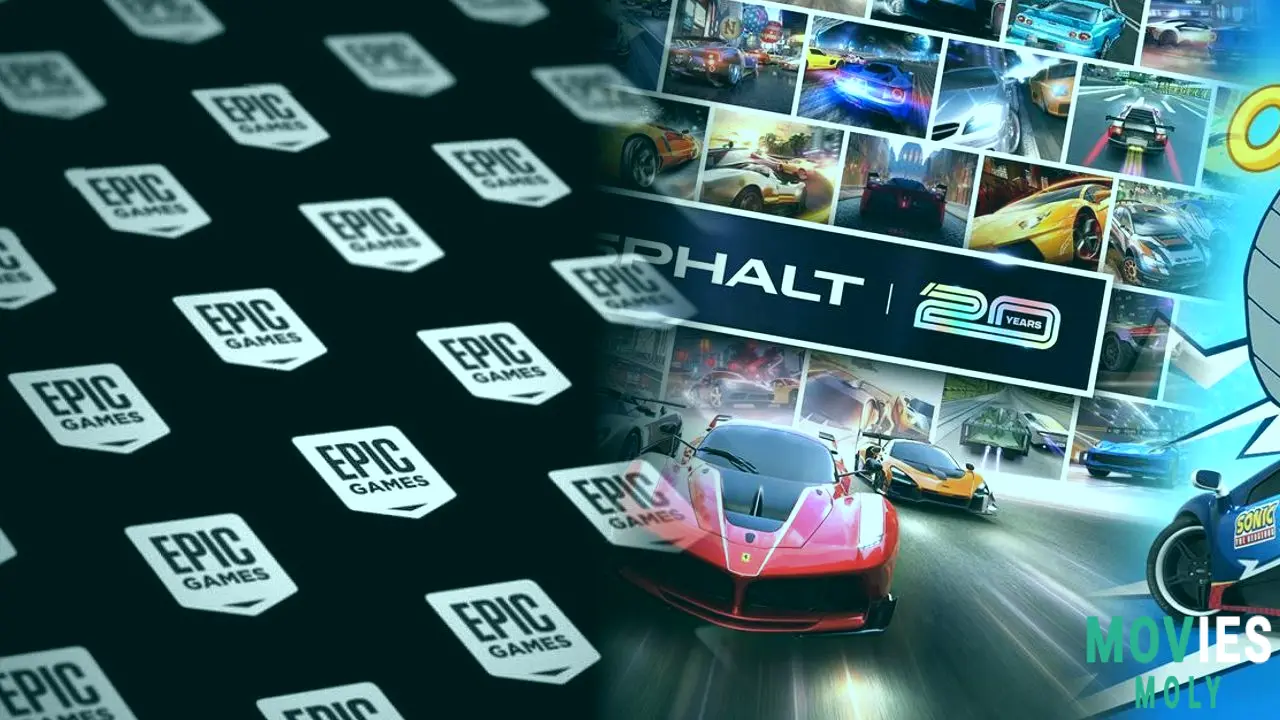
Epic Games is obviously preparing itself to play an important role in the emerging gaming and metaverse scene. Epic's investments in Unreal Engine, partnerships like as the Disney collaboration, and aggressive user acquisition techniques all hint to a future in which the company wants to be a central power. The company's continued efforts to build a connected gaming universe point to a long-term goal that goes far beyond individual game releases.
Epic Games' future is anticipated to include additional expansion of its digital storefront, continued innovation with the Unreal Engine, and deeper integration of intellectual assets into Fortnite's burgeoning metaverse. As the game industry shifts toward more interconnected and permanent online experiences, Epic Games is poised to lead the charge, defining what 'epic' genuinely means in the world of interactive entertainment.

